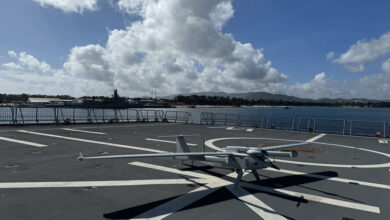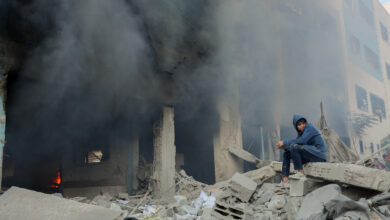‘Indications’ Israel behind PMU base strikes, Iraq PM Abdul Mahdi says
Iraq’s prime minister has said for the first time that his government had “indications” Israel was behind some attacks on paramilitary bases this summer, but stopped short of making an explicit accusation.
The Hashd al-Shaabi force (Popular Mobilization Units) has blamed the series of explosions at its bases and arms depots on Israel and the United States, but the central government had so far said it was still investigating.
In a first, Prime Minister Adel Abdul Mahdi told Al-Jazeera television in an interview aired Monday, September 30 that those investigations were nearing a conclusion.
“Some of the investigations carried out by Iraqi authorities provided important indications that Israel was behind some of these attacks,” he said, in excerpts of the interview seen by AFP.
Abdul Mahdi said he had even “heard from the Americans” that Israel was involved but that his government still lacked “tangible evidence.”
The blasts at five Hashd bases have been a threat to Iraq’s precarious balancing act between its two main allies, the U.S. and Iran.
In June, the Iraqi Army said an unidentified drone bombed a Hashd al-Shaabi base in Salahuddin province, and a drone bombed a militia position in the province in mid-July, killing at least one person. The U.S.-led Coalition denied involvement in either incident.
In another incident, a “materiel stockpile” exploded at a PMU headquarters adjacent to Iraq’s Balad Air Base, with no casualties reported.
A preliminary Iraqi government inquiry later suggested an airstrike may have been the cause, leading Prime Minister Adil Abdul Mahdi to issue a decree ordering all military flights over Iraqi airspace to be treated as hostile unless approved by him.
Top Hashd officials said the U.S. was broadly “responsible” but specifically blamed Israeli drones for an August 25 strike that killed a Hashd fighter near Iraq’s western border with Syria.
The Pentagon has denied responsibility and said it is cooperating with Iraq’s investigations, while Israel has neither confirmed nor denied involvement.
The Iraqi government had thus far said it was studying evidence of foreign involvement, and even last week Abdul Mahdi told reporters there was no conclusive proof.
But MP Ahmad al-Assadi said Friday that he and fellow parliamentarians were briefed on Israeli involvement by Faleh al-Fayyadh, the premier’s national security advisor and head of the Hashd.
“He told us that the investigative committees proved that at least three of the incidents were external attacks, including two by Israel,” he told AFP.
Assadi, who is also a leading Hashd official, said he did not know why the government had not made those results public.
The Hashd was established in 2014 from mostly-Shiite armed groups and volunteers to fight Islamic State. In July, Abdul Mahdi ordered the militias to formally integrate into the Iraqi Security Forces or disarm, but some still operate independently.
The U.S. and Israel fear some units are an extension of their arch-foe Iran and have been equipped with precision-guided missiles.
Israel has admitted to carrying out hundreds of strikes on pro-Iran paramilitary units in neighboring Syria, which added fuel to suspicions it was behind those in Iraq.
Last month, Iraq’s foreign ministry threatened to submit a complaint to the United Nations once the investigations were complete.
With reporting from AFP












